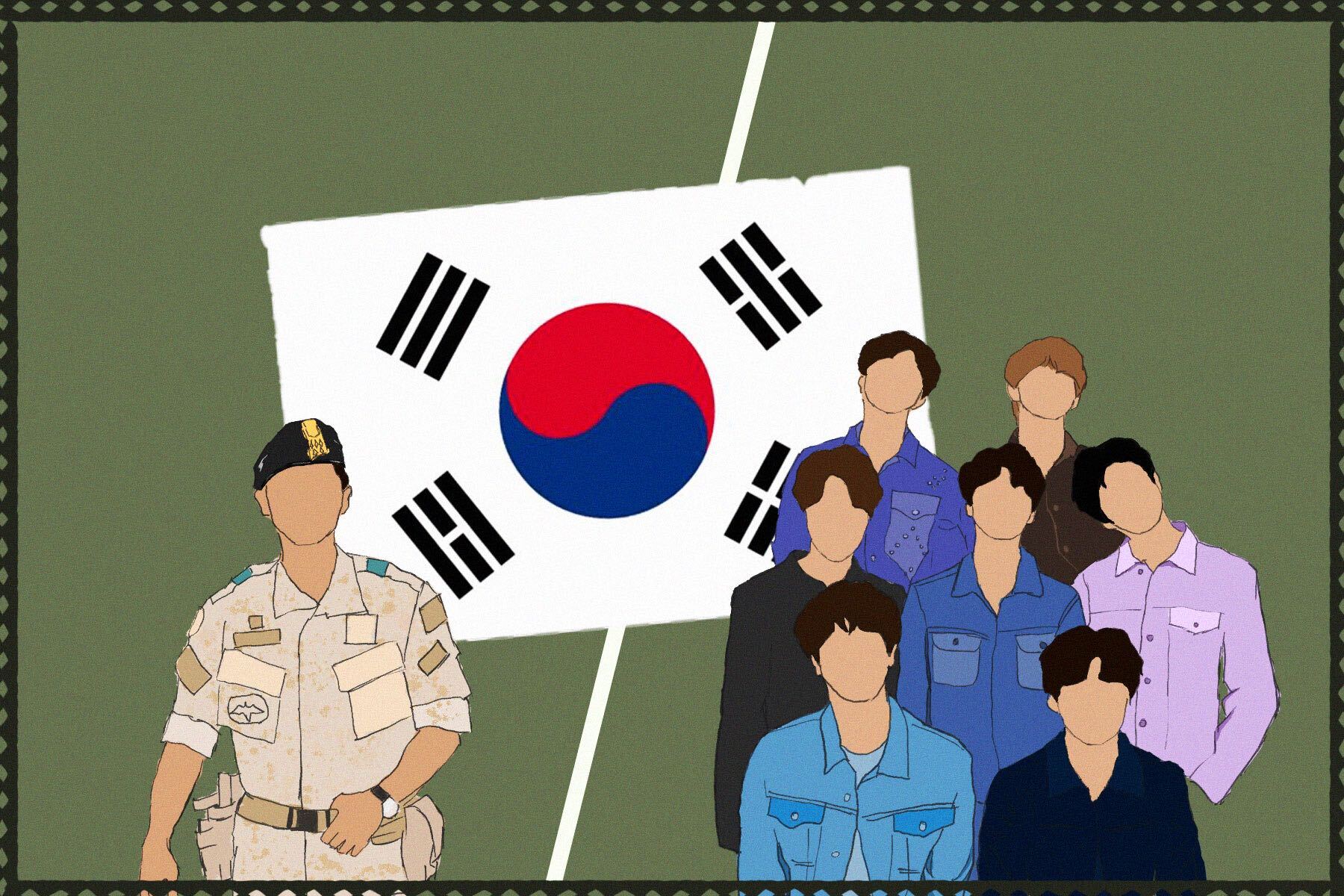BTS (Bangtan Sonyeondan) has been the most popular K-pop group. The band consists of seven members: Kim Seok-jin (Jin), Min Yoon-gi (Suga), Jung Ho-seok (J-Hope), Park Ji-min, Kim Tae-hyung, Jeon Jung-kook and Kim Nam-joon. BTS’ fan base, the “ARMY,” is a loyal fanbase that considers each member to be an important pillar in their lives. The band promotes timeless messages throughout their art. Their preachings are most promiment in their 2018 album, “Love Yourself: Answer,” instructing fans to stay true to and love themselves.
In June of 2023, the group celebrated the ten-year anniversary of their debut album, releasing their annual “Festa” celebration event online. “Festa” is an event that BTS and their label Big Hit entertainment release every year. This year’s Festa included footage of the entire band together presenting the new single, “Take Two.” This struck a chord with fans considering the group disbanded prior to the 2022 Festa.
While it seemed like BTS was riding high with no end in sight, the group announced their hiatus in the 2022 Festa video. While some members would begin releasing solo music, ARMY quickly realized that the leading reason for the band’s dissolution was the enlistment of eldest member, Jin, in the South Korean military. Rapper and dance captain, J-Hope, followed closely behind. However, the news was not completely surprising for fans.
Under Article 39 in the South Korea constitution, it is compulsory for physically fit men between the ages 18 and 35 to serve in the military for a duration of 18 to 21 months. Since 1957, the South Korean government has rarely granted exemptions to citizens. In the years leading up to this inevitable announcement, the ARMY wondered if idols such as the members of BTS could qualify for this exemption. They argued that the contribution they’ve already made to the South Korean government, bringing in an estimated $3.6 billion annually to the South Korean economy, should compensate for serving.
BTS’ ability to challenge social norms not only in South Korea, but across the world, fans expected the band to find a loophole to avoid service and continue performing. Despite this hope, each member will be taking their leave of absence and fulfilling their duty to the country. Many South Koreans consider it taboo for men to not complete their military service. In fact, some job positions even expect completion of service from applicants. Military service is considered a rite of passage for boys to become men.
BTS’ conformity to “manhood” is not limited by their enlistment. Throughout their careers, they’ve explored the gender binary and redefined what it means to be men. Celebrity culture allows for general social norms and cultural customs to shift, which is evident in BTS’ impact.
Confucianism greatly influences South Korean Culture. Confucianism dictates a strict divide between the roles of men and women. For the longest time, men were expected to be stoic. BTS tests the bounds of masculinity and femininity, a sure sign of social norms regarding gender changing.
BTS is known for their strong sense of fashion and individualistic approach to gendered clothing. There is a plethora of examples of BTS wearing typically feminine clothing. They almost always incorporate hints of femininity to the outfits they wear, such as long earrings and other unique accessories. They are not afraid to style corsets, skirts and fully pink outfits into photoshoots and music videos. The group’s leader, Kim Namjoon discussed his perspective on masculinity in a Rolling Stones interview stating, “The labels of what being masculine is, is an outdated concept.” He conitunes, “It is not our intention to break it down. But if we are making a positive impact, we are very thankful.”
Beyond their clothing choices, they are not afraid to embrace self-care. Korean beauty and skincare regimens have exploded in popularity in the last decade. With this rise, Korean men have not shied away from participating in the country’s culture of taking care of their skin.
Beyond the aesthetics of their exterior facade, it has become more common for men to seek out mental health services. yet another act that can harm a fragile masculinity, as it was not always acceptable for men to exhibit emotions beyond stoicism.
BTS member Suga spoke up in a Rolling Stones interview and discussed his own internal turmoil that he struggled with before admitting that he needed help. “At first, I decided to go because I was having trouble with my mental health. But in the process, I learned a lot and came to the realization that I’m not perfect, and that’s okay. It’s okay to have flaws and weaknesses, and it’s okay to ask for help.”
It is a proud moment for the ARMY and all who feel burdened to present as a specific gender, to see men who proudly embrace femininity, courageously step into an experience, such as the military service, that is regarded as a symbol of masculinity in their society.
















